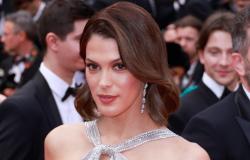DSince the launch of the presidential campaign in the United States, we have been expecting global superstar Taylor Swift to endorse the Democratic candidacy. The announcement, just after the debate between Vice President Kamala Harris and former President Donald Trump on Tuesday, September 10, is not a surprise: but the timing, tone and theme make it a particular political gesture. Her Instagram post goes far beyond Hollywood’s ritual commitments to Democratic candidates: “I’m voting for Kamala Harris because she fights for rights and causes that require a warrior to defend them.”
Through the explicitly moral nature of her support, Taylor Swift now illustrates the political power of popular culture, too often decried in France, whose role is to transmit shareable and mobilizing values that politicians have a hard time embodying. It is not about being a role model – she only indicates what she is going to do – but about doing and giving confidence to young voters. She urged her fans to register to vote at a crucial moment, targeting an electorate that Democrats are struggling to get out to vote.
This positioning differs from that of the “personalities” who regularly show their support for Democratic candidates: in 2016, Beyoncé, Salma Hayek, Lena Dunham, George Clooney, Robert De Niro, Meryl Streep, Pharrell Williams and many others had given their support to Hillary Clinton against Donald Trump. At the time, it was a question of using both star status and moral superiority, in the tradition of a tasteful alliance of privileged Democrats and the mythical world of Hollywood. Which had then turned against Hillary Clinton, unfairly perceived as an elitist bourgeois who despised the “white trash” [« raclures blanches »] of Trump.
Role assumed
Taylor Swift (among others) supported Joe Biden in 2020. But, four years later, his post and his sarcastic signature – “Taylor Swift, Childless Cat Lady”, reference to reactionary vice-candidate J.D. Vance’s comments about Democrats in 2021 “cat women without children” – signal a change of scale, a mutation in the political role of popular culture. It is not a question of individual stars providing their beautiful endorsement from above, but of a empowerment [« responsabilisation »] of their audiences; the recognition of a cultural field that is not reduced to its stars or its globalized products, but plays a key role (in cinema, in song, series, fashion and sport) in the promotion and expression of the values carried by candidate Harris.
You have 63.42% of this article left to read. The rest is reserved for subscribers.





